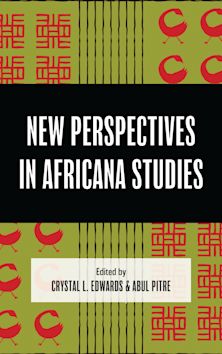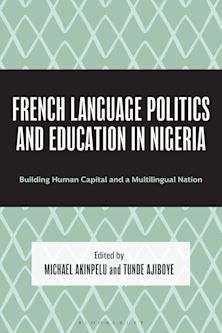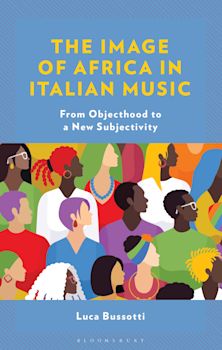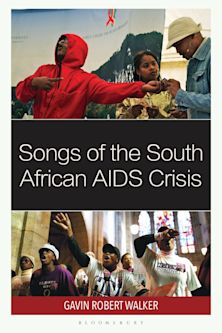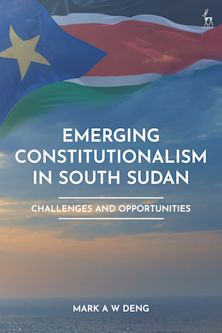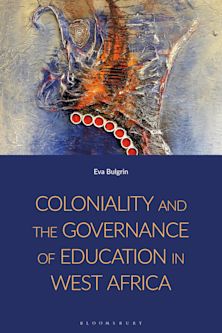- Home
- ACADEMIC
- African & Africana Studies
- African and Africana Studies - Other
- Sudanese Intellectuals in the Global Milieu
Sudanese Intellectuals in the Global Milieu
Capturing Cultural Capital
Gada Kadoda (Anthology Editor) , Sondra Hale (Anthology Editor) , Mohamed Abusabib (Contributor) , Mai Azzam (Contributor) , Balghis Badri (Contributor) , Francis Mading Deng (Contributor) , Daniel Jok Deng (Contributor) , Atta El-Battahani (Contributor) , Abdullahi Ali Ibrahim (Contributor) , Enrico Ille (Contributor) , Amani El Jack (Contributor) , Luka Biong D. Kuol (Contributor) , Rabah Al Sadig (Contributor) , Fatima Babiker Mahmoud (Contributor) , Sana Makawi (Contributor) , Wini Omer (Contributor) , Mai Izzeldeen (Contributor) , Mariam Sharif (Contributor) , Tim Niblock (Foreword)
Sudanese Intellectuals in the Global Milieu
Capturing Cultural Capital
Gada Kadoda (Anthology Editor) , Sondra Hale (Anthology Editor) , Mohamed Abusabib (Contributor) , Mai Azzam (Contributor) , Balghis Badri (Contributor) , Francis Mading Deng (Contributor) , Daniel Jok Deng (Contributor) , Atta El-Battahani (Contributor) , Abdullahi Ali Ibrahim (Contributor) , Enrico Ille (Contributor) , Amani El Jack (Contributor) , Luka Biong D. Kuol (Contributor) , Rabah Al Sadig (Contributor) , Fatima Babiker Mahmoud (Contributor) , Sana Makawi (Contributor) , Wini Omer (Contributor) , Mai Izzeldeen (Contributor) , Mariam Sharif (Contributor) , Tim Niblock (Foreword)
You must sign in to add this item to your wishlist. Please sign in or create an account
Description
Sudanese Intellectuals in the Global Milieu: Capturing Cultural Capital propels Sudanese intellectuals into the global intellectual milieu and argues for their place in world intellectual history. The contributors posit that Sudan is currently in its most uncertain and perhaps most generative period, as the unrest, conflicts, and upheavals of the twentieth and twenty-first centuries threw Sudanese intellectuals and activists into identity, economic, environmental, religious, and existential crises. Despite these crises, the unrest has created a period of knowledge production and cultural production in Sudan. The contributors to the collection are Sudanese intellectuals who explore the history and evolution of knowledge production, thought, and cultural capital in Sudan.
Table of Contents
Chapter 1: More than a Grain of Sand: Opening Outward-Sudanese Thought in a Globalized Milieu
Sondra Hale
Chapter 2: Capturing Cultural Capital: Where to Start, and Which Ideas Matter?
Gada Kadoda
Section II: Ghosts and Beacons
Chapter 3: Visitations: Dialogue with the Ghost of Dr. John Garang
Francis Mading Deng
Chapter 4: The Beacon: A Glimpse of Suad Ibrahim Ahmed's Intellectual Life
Fatima Babiker Mahmoud, with an Addendum by Mohamed Suliman and Azza Mohamed
Section III: Hybridities and Ambiguities
Chapter 5: The Invention of the Northern Sudanese
Abdullahi Ali Ibrahim
Chapter 6: The Rise and Decline of the Hybridity Thesis in the Intellectual Discourse on Identity: The Sudan Example
Mohamed Abusabib
Section IV: The Production of Intellectuals
Chapter 7: Interrogating the Dilemma of Sudanese Academics: Producing Knowledge or Recycling Ideologies
Atta El-Battahani
Chapter 8: The Pioneering Women's and Gender Studies Intellectuals in Sudan:
Product details
| Published | 28 Mar 2022 |
|---|---|
| Format | Ebook (Epub & Mobi) |
| Edition | 1st |
| Extent | 342 |
| ISBN | 9781793622778 |
| Imprint | Lexington Books |
| Publisher | Bloomsbury Publishing |
About the contributors
Reviews
-
Sudan’s decades of struggle to transition from its colonial/condominium situation under Britain and Egypt to a nationally integrated democratic state have been rocky. The people of Sudan have endured long periods of military dictatorship punctuated by short-lived periods of hard-won democracy. Recurrent conflicts and full-blown civil war were fought over issues of regional inequalities and religious and ethnic dominations, leading to the eventual secession of South Sudan and unresolved tension between military and civilian rule. Sudan’s struggles with identities, hybridities, ambiguities—African and Arab, Muslims of different sects, non-Muslim, and Islamist, North and South, riverain and regional, ethnically and linguistically diverse—together with the tensions of political Islam, capitalist, and socialist trends, have produced inspired intellectuals, whose thought has received global attention at times, though much has remained untold. In this volume, several contributors theorize the ways in which Sudan’s intellectuals and organic intellectuals, including theorists, political leaders, artists and musicians, women’s movement leaders, and voices from marginalized groups, have contributed to political efforts and cultural direction in their on-going efforts to find a free and stable life for the diverse people and cultures of Sudan and South Sudan. Others brilliantly recapture the heroes and martyrs of this history as individuals, using story-telling and memoir. The volume deepens our knowledge of Sudan’s intellectual discourse—on cultural heritage, identity, and society—in centuries-long history, in pivoting perspectives that include marginalized groups, and in spotlighting women’s leadership in past and current struggles, extending Hale’s and Kadoda’s previous works on gender and politics and on networks of knowledge production in particular.
Ellen Gruenbaum, Purdue University
-
Sudanese Intellectuals in the Global Milieu: Capturing Cultural Capital, cleverly centers Sudanese intellectuals and their knowledge production at an important moment in the history of Sudan. It invokes the past and interrogates the present to debate a better future for a country in turmoil. Written about and with well-known Sudanese intellectuals, the book captures both the hope of past generations and the revolutionary energy of a new generation of writers, artists, and activists. A must-read for Sudanists, Africanists, and Middle Eastern Scholars interested in knowledge production globally.
Amal Hassan Fadlalla, University of Michigan, Ann Arbor

ONLINE RESOURCES
Bloomsbury Collections
This book is available on Bloomsbury Collections where your library has access.












